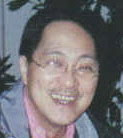GOTCHA By Jarius Bondoc, The Philippine Star, Monday, September 10, 2007
Electoral reformists and Comelec officials will meet today at the posh Wack Wack Golf and Country Club in Mandaluyong. Long planned, their agenda is to assess the May 2007 midterm balloting and find ways to rescue the shattered voting system. Comelec chief Ben Abalos chose the venue for the three-day event over which he will preside. The irony cannot be lost on the attendees. This is the same clubhouse where, Joey de Venecia III says, Abalos in Dec. 2006 tried to bribe him out of the national broadband project for $10 million, to favor ZTE Corp. of
Abalos has made a blanket denial, of course, and threatened to go on “legal offensive” against de Venecia. That only sent news hounds hotter on the trail of juicy tidbits at Wack Wack.
Earlier, linked by Rep. Carlos Padilla to the shady $330-million (P16-billion) telecoms supply deal, Abalos had admitted on talk radio to flying to Shenzhen four times last year on ZTE expense. It was out of harmless golf protocol, he said, since he often hosted ZTE execs at Wack Wack where he used to be president. He claimed to have nothing to do with broadband, but only brought the Chinese to Finance Sec. Gary Teves’s house to mull agribusiness investing in
Then it was former Economic Sec. Romy Neri’s turn to be queried by newsmen. He said Abalos indeed had brought ZTE officials to him. Too, that he was offered P250 million to assure the approval of ZTE’s bid by the National Economic Development Authority. And now it turns out that de Venecia too was offered double to withdraw the competing offer of his Amsterdam Holdings Inc.
One of few Filipino experts in broadband technology, de Venecia recounts that he promptly turned down Abalos’s offer out of shock. He then explained to him that he has two foreign partners in AHI who are bound by laws against overseas corruption.
Days earlier on
De Venecia felt that Abalos also wanted officials and ZTE execs to perceive them to be working together. Soon after the $10-million offer, he was invited to the Comelec chief’s office where he was introduced to DOTC assistant secretary Lorenzo Formoso. “You see, Joey is here as my partner,” Abalos allegedly said.
In another meeting at Wack Wack in early February, de Venecia recalls, it was DOTC Asec. Elmer Soneja who walked in. “You see, Joey and I are partners now,” Abalos again allegedly assured.
But de Venecia had become wary of Abalos after the $10-million issue. He felt worse after a meeting on
Abalos allegedly began by saying everything was fixed. Proof was that competitor de Venecia, the Speaker’s son, was with him. De Venecia says that Abalos then demanded to be given monies earlier promised him, stressing that he would be very busy starting Jan. 15, 2007. That date happens to be the start of the election period.
Abalos allegedly added: “The President, the party and the Speaker is waiting for it.” De Venecia says he stood up and pulled Abalos to a corner, demanding that the latter stop dropping names, especially his dad’s, who has no knowledge of the broadband project anyway. It was also then that de Venecia stumbled upon the overpricing.
Months later, on Apr. 21, Mendoza and Yu Yong would be signing the ZTE contract. It came at the height of the five-month election ban on government contracting for supplies or services. Election commissioners have yet to say why such contracting was allowed to pass. They’ve only said so far that they had given to Abalos all authority to issue exemptions on such contracts.
And so today reformists and Comelec will strive to spot loopholes in the many laws compiled under the Omnibus Election Code. How far they will go is unsure. But based on Abalos’s public confessions alone, there ought to be a law against Comelec officials jet-setting when they should be preparing for clean, orderly and credible elections.
* * *


